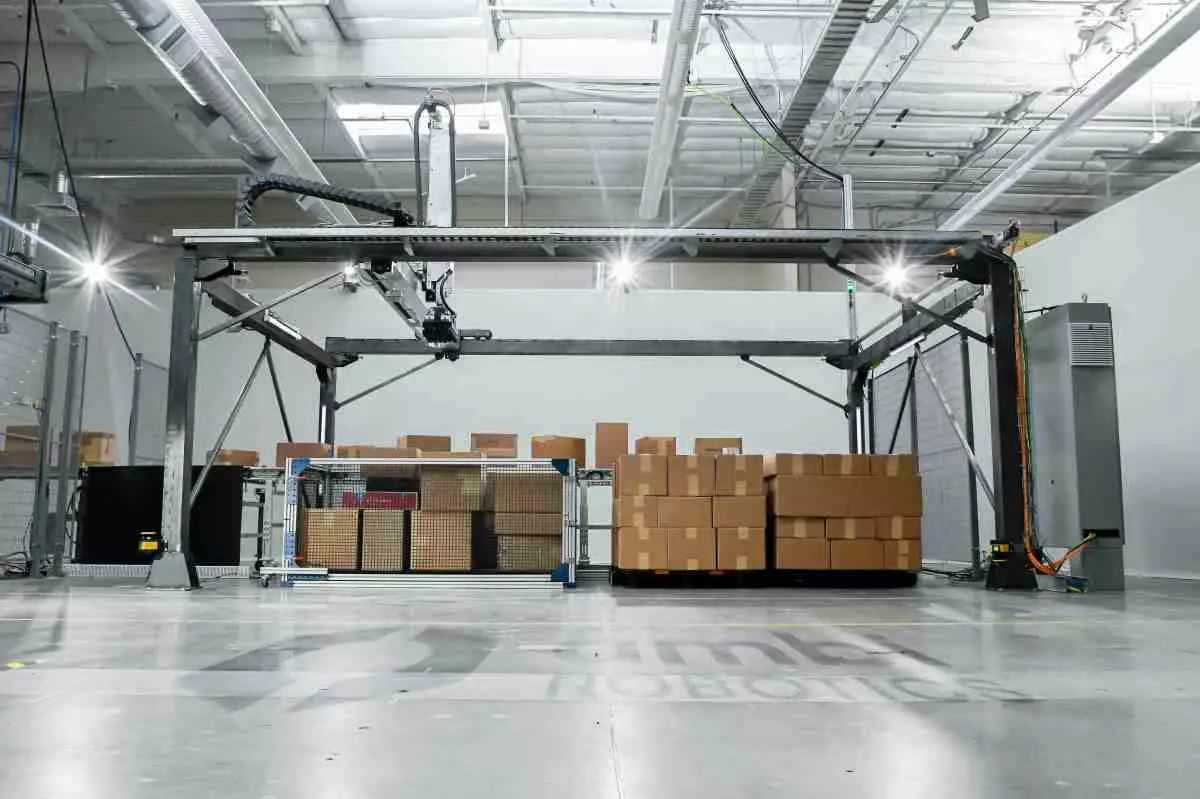In the competitive landscape of warehouse automation, UC Berkeley spinout Ambi Robotics has emerged as a significant player, recently unveiling its innovative pallet packing system, AmbiStack. This cutting-edge technology responds to the growing demand for efficient logistics solutions, especially in an era where the need for automation has become paramount. With significant insights gained from robotics and artificial intelligence, AmbiStack promises to streamline and enhance the logistics process, making it safer and more efficient.
At the heart of AmbiStack’s functionality is an industrial robotic arm that operates with exceptional precision. Mounted above a conveyor belt, this robotic arm is designed to perform intricate movements along the X and Y axes, enabling it to lift boxes using suction cups attached to a specialized gripper. The primary task of the system is to automate the labor-intensive processes of picking and stacking boxes onto pallets for shipping or storage. Historically, these operations have been both time-consuming and hazardous for human workers, often leading to injuries.
Traditional solutions such as forklifts have introduced their own risks, further emphasizing the necessity for safe automation. AmbiStack stands out as it eliminates human involvement in these crucial stages of logistics, thereby reducing the risk of injury while increasing overall efficiency. By combining picking and stacking into a single workflow, Ambi Robotics solves a dual challenge in the logistics sector, potentially transforming how warehouses operate.
Robust technological advancements underpin the capabilities of AmbiStack, particularly its artificial intelligence (AI) component. With the system trained on a vast dataset comprising over 200,000 hours of warehouse operations, AmbiStack has the ability to dynamically analyze, track, pick, and place various package sizes. This extensive training allows the system to adapt to real-world conditions, enhancing its accuracy and efficiency.
The AI-driven approach not only boosts operational speed but also enables the automated system to adapt to a variety of packing challenges, which is crucial in a fast-paced warehouse environment. In an age where customization and rapid fulfillment are key, such flexibility is critical for logistics providers aiming to maintain competitive advantages.
Ambi Robotics has already initiated pre-sales for AmbiStack, with the first deployments projected to roll out by mid-2025. This timeline reflects a strategic move to capitalize on the rising demand for automation in logistics. In addition, Ambi Robotics is planning to ramp up its manufacturing capabilities in early 2026 to meet anticipated orders. This proactive approach indicates the startup’s commitment to not only delivering advanced technological solutions but also ensuring they can meet market demand promptly.
Ambi’s earlier offerings also demonstrate their continuous evolution in robotics. The AmbiSort A-Series, launched prior, focused on smaller package sorting, and has paved the way for more complex systems such as the AmbiSort B-Series capable of handling numerous sorts per hour.
Despite its impressive advancements, Ambi Robotics operates within a crowded field of warehouse automation startups. Competitors like Pickle, Righthand, and Hai Robotics are also pushing the boundaries of this technology. Notably, Covariant, co-founded by esteemed UC Berkeley robotics professor Pieter Abbeel, has integrated its technology into Amazon’s automated systems, indicating the level of competition Ambi is up against.
Moreover, established players like Hyundai-owned Boston Dynamics are venturing into the warehouse automation space with their commercial robot, Stretch. As competition heightens, Ambi must leverage its unique strengths—such as its AI capabilities and its diverse product lineup—to carve out and secure its market share.
As industries increasingly pivot toward automation, opportunities abound for innovative companies like Ambi Robotics. With the introduction of AmbiStack, the future of warehouse efficiency appears bright, promising safer working conditions and optimized logistics processes. In a world still recovering from the disruptions caused by the COVID-19 pandemic, such advancements are not only timely but necessary. As Ambi Robotics continues to innovate and expand, its impact on the logistics sector might redefine operational standards for years to come.

